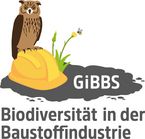
IÖW-Projects
Every year the IÖW works on approximately 60 research projects. Since its existence the instiute has completed more than 600 projects.
Enable advanced search
40 running Projects // 350 Projects in total
SOILGUARD Sustainable soil management to unleash soil biodiversity potential and increase environmental, economic and social wellbeing
Development of methodological foundations and working aids for climate protection and circular economy aspects in the public procurement practice
- frisch
Monetization approaches for ecosystem services on federal waterways and integration options in benefit-cost analyses
Home-Office and energy transition: Implications of mobile working and opportunities for the transition of the energy system Electricity consumption, mobility behavior and rebound effects
PaDiSo Participation in digitalized energy systems: Investigating social innovation processes
Environmental Awareness in Germany 2022 Study for the German Environmental Agency and the Federal Ministry for the Environment, Nature Conservation, Nuclear Safety and Consumer Protection
Climate and Water under Change CliWaC
REPAID - Reusable Solutions for Gastronomy Promotion of reusable solutions to reduce single-use plastic service packaging through automation of take-back, interventions at the point of sale and possibilities of digitalisation to support user behaviour
- frisch
Digital Technologies and nature-based Climate Protection in Municipalities (DiNaKom)
Environmental economic report 2024 for the state North Rhine-Westphalia
Environmental sustainability in the neighbourhood Technical foundations for a municipal sustainability strategy and development of a communication concept
gARTENreich Preferences and constraints for biodiversity conservation in home garden, project phase 2
Holistic Biodiversity Management in Construction Materials Industry (GiBBS) Strategies and Measures for Biodiversity Protection in Context of Resource Extraction, project phase 2
The Future of the Tidal Elbe in a Changing Climate – Climate Change and Flood Protection TideelbeKlima
Analysis and use of climate services Capacity-building, education and networking for climate adaptation


![[Translate to Englisch:] SOILGUARD](/fileadmin/_processed_/2/f/csm_SOILGUARD_Logo_7ed0ce26e8.png)




